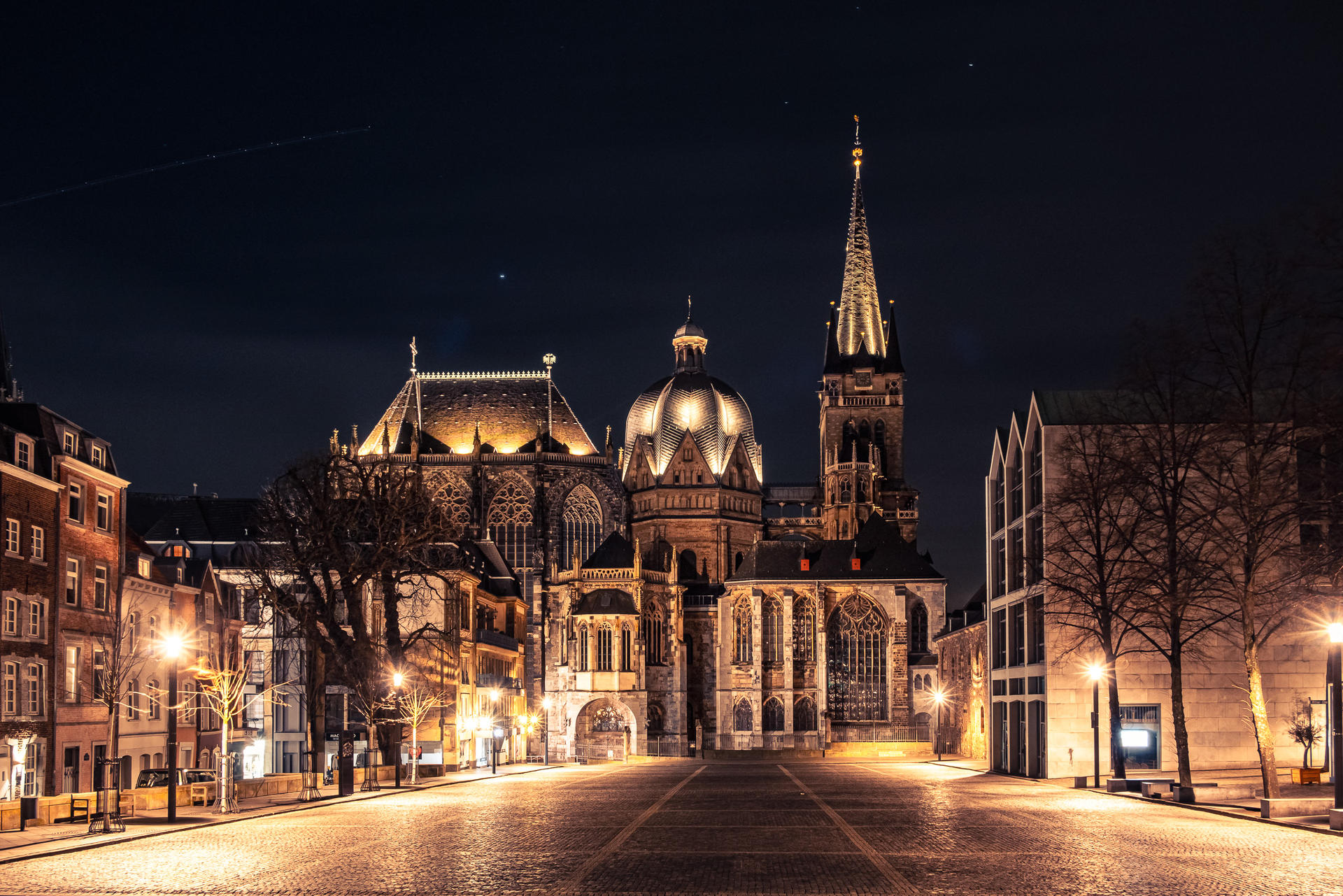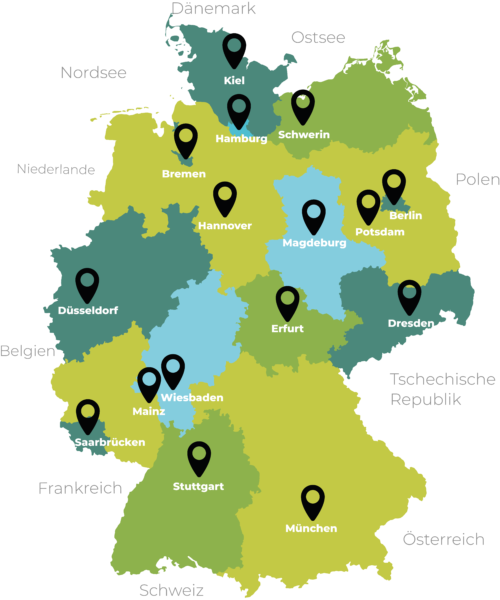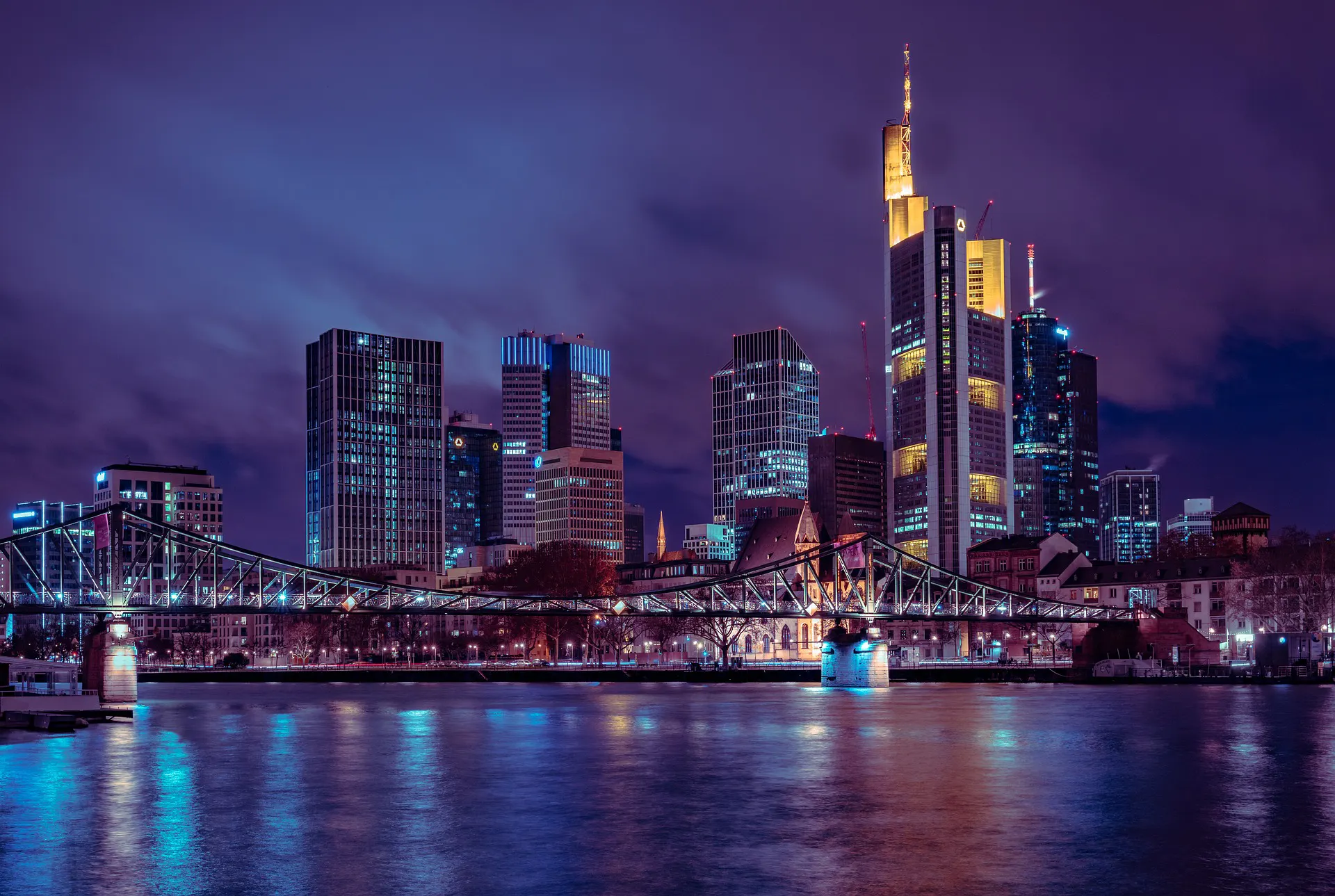
Frankfurt am Main
Frankfurt am Main is a city in Germany, simply called Frankfurt despite the risk of confusion with the city of Frankfurt an der Oder.
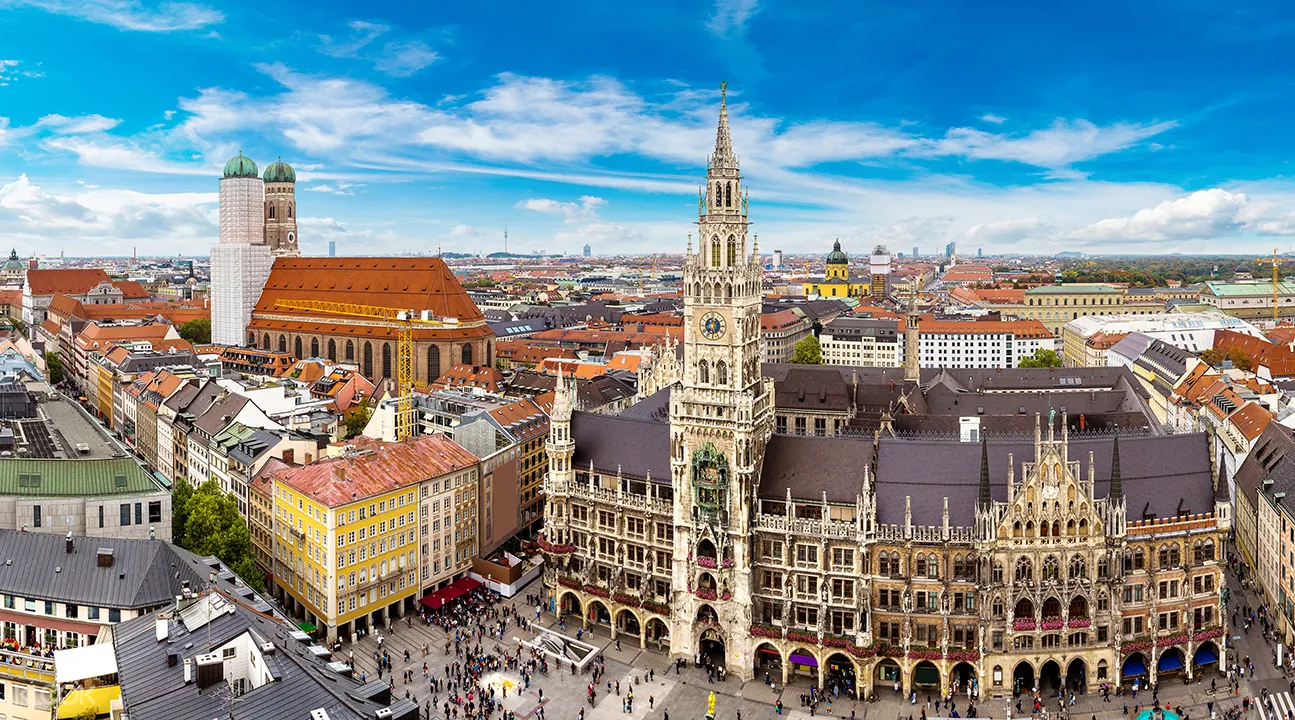
München
Munich is the capital and largest city of Bavaria. It is located on the banks of the Isar River north of the Bavarian Alps. With a population of approximately 1.5 million, Munich is the third-largest city in Germany, after Berlin and Hamburg.
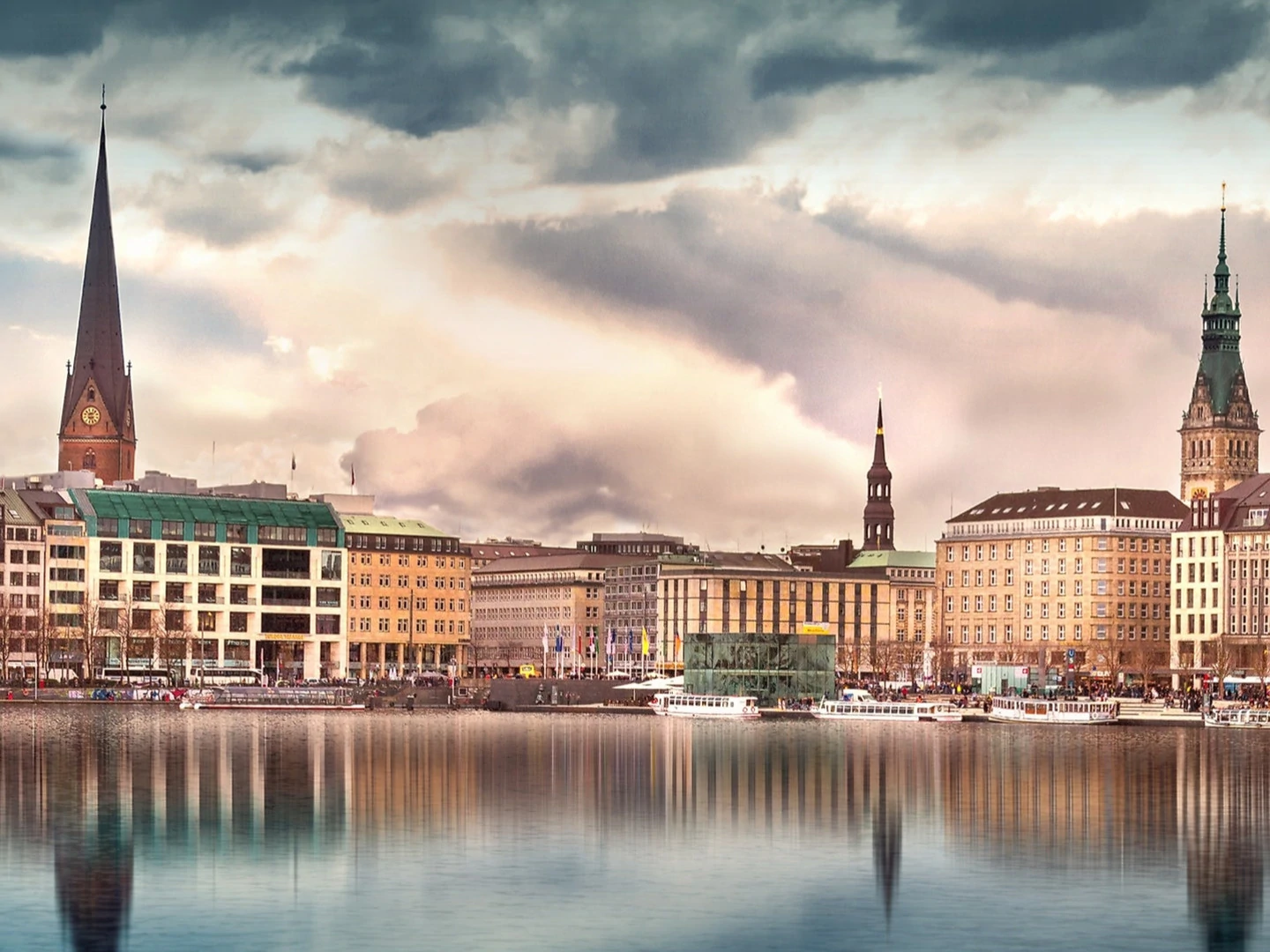
Hamburg
Hamburg is the second-largest city in Germany, with a population of over 1.7 million people. Hamburg is a major port on the Elbe River and a global hub for services, media, logistics, and industry, with headquarters and facilities for Airbus, Blohm + Voss, Aurubis, Beiersdorf, and Unilever.
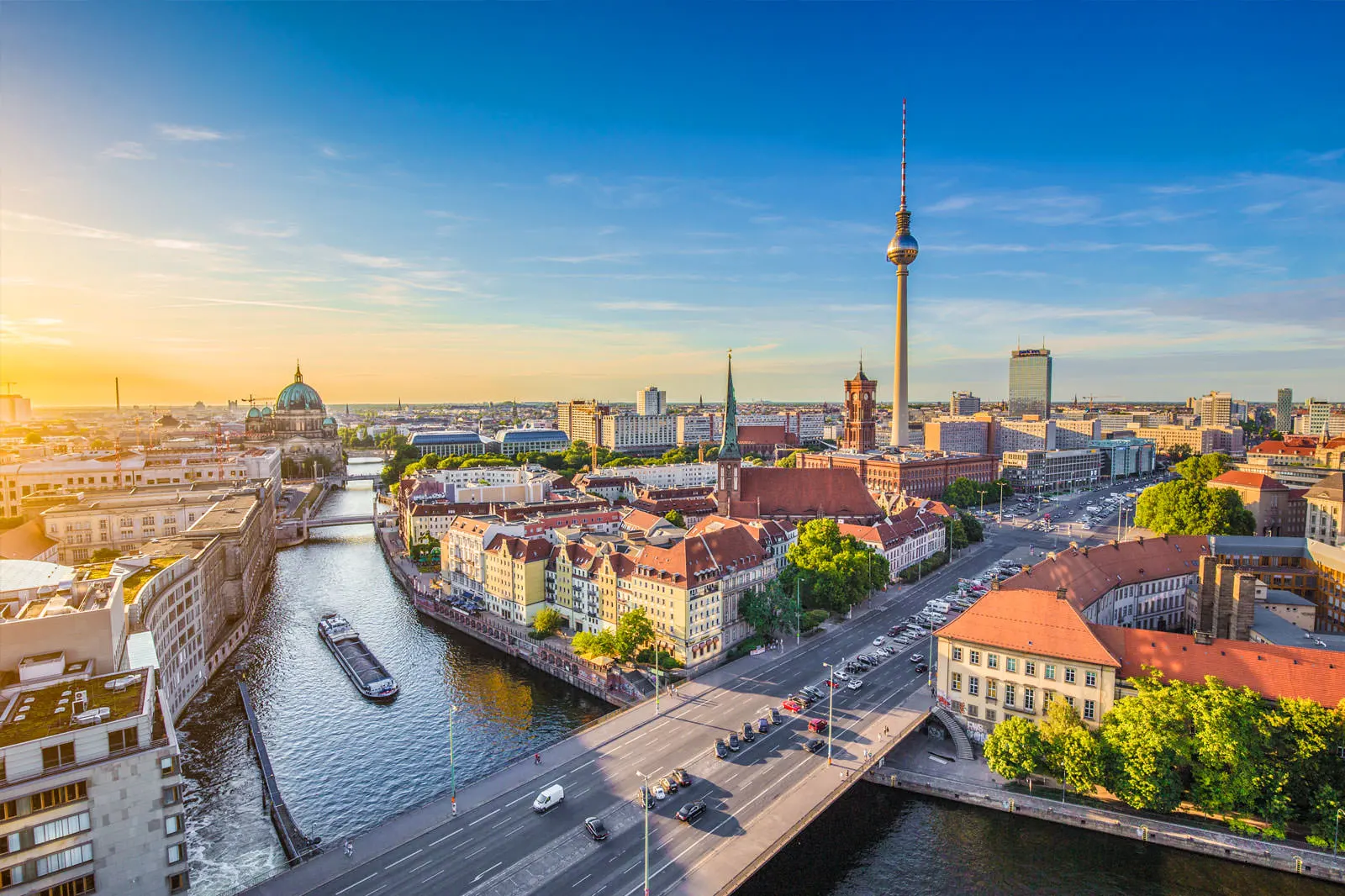
Berlin
Berlin is the capital and largest city of Germany, as well as one of its 16 federal states. With a population of approximately 3.7 million, Berlin is the second most populous city and the seventh most populous urban area in the European Union.
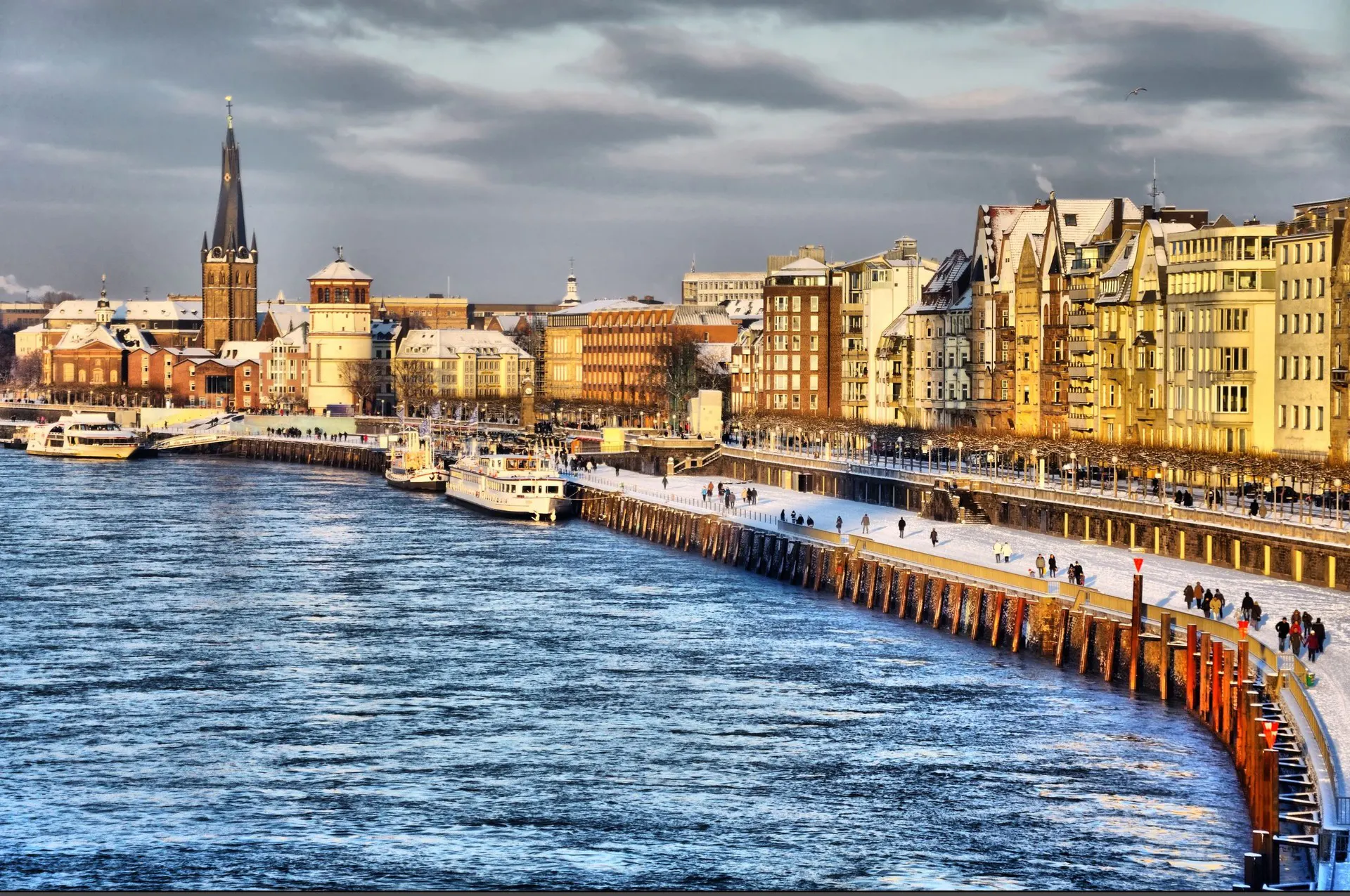
Düsseldorf
Düsseldorf is the capital of the German state of North Rhine-Westphalia and the seventh most populous city in Germany. The city is well-known for its fashion and trade industries, as well as its international shopping and financial center.
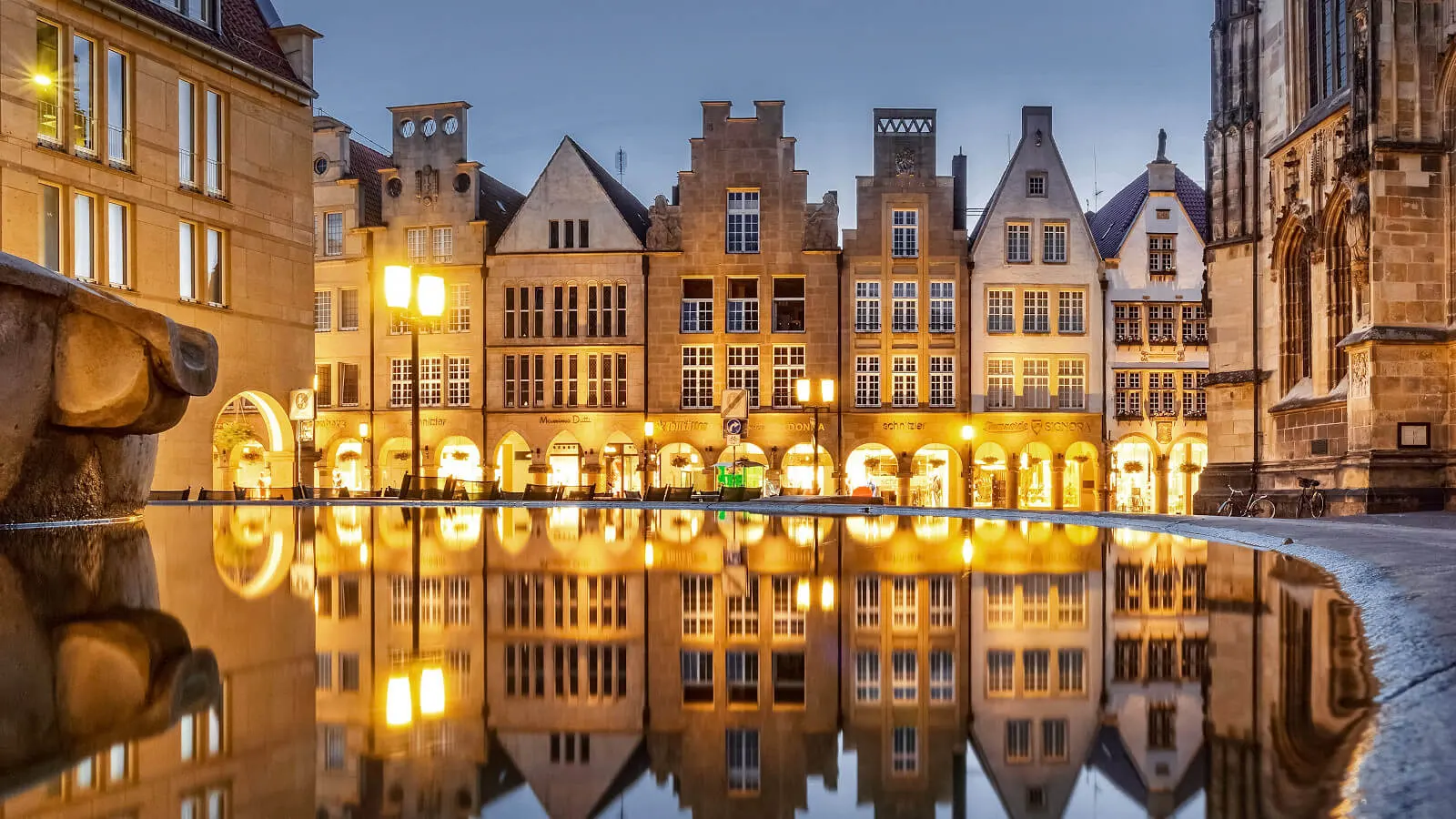
Münster
Münster is a city in North Rhine-Westphalia, Germany. It is also the capital of the local government region of Münsterland. Today, it is often referred to as the 'Bicycle Capital'.
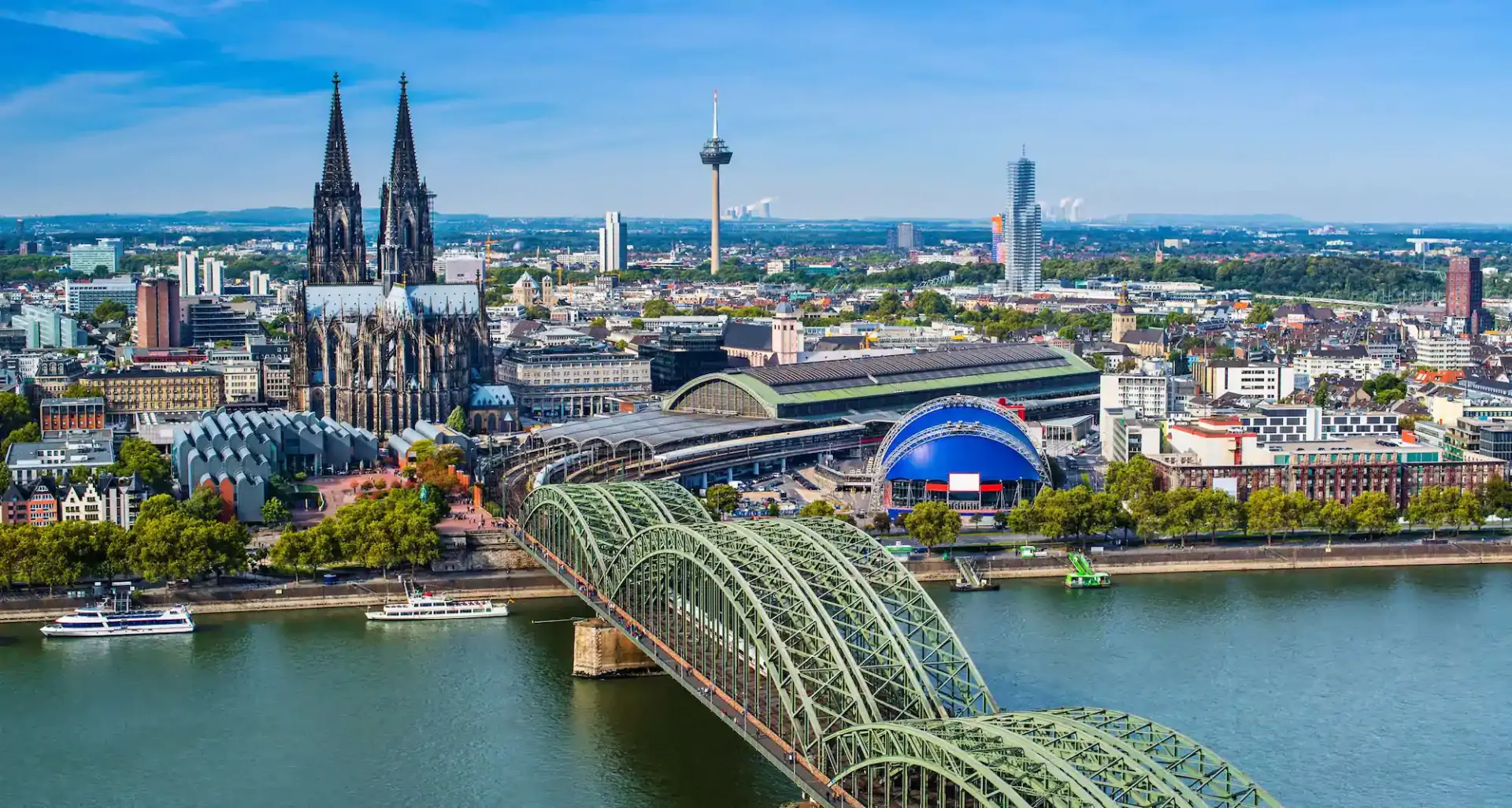
Köln
Cologne is the largest city in the German federal state of North Rhine-Westphalia and the fourth-largest city in Germany. Cologne is situated on both sides of the Rhine River, less than eighty kilometers from Belgium.
